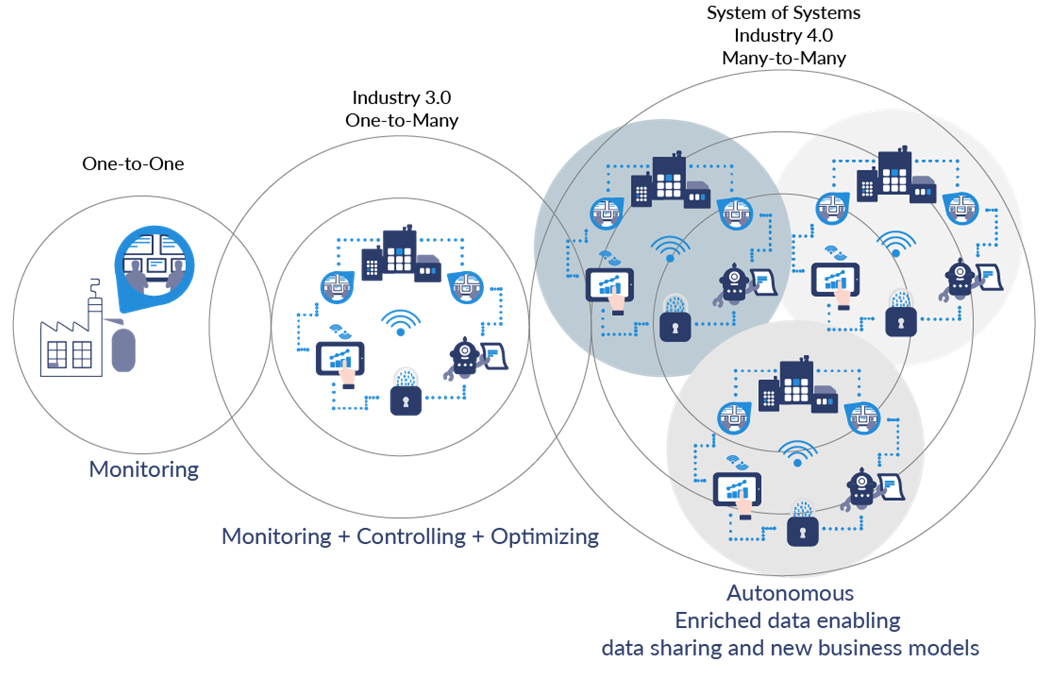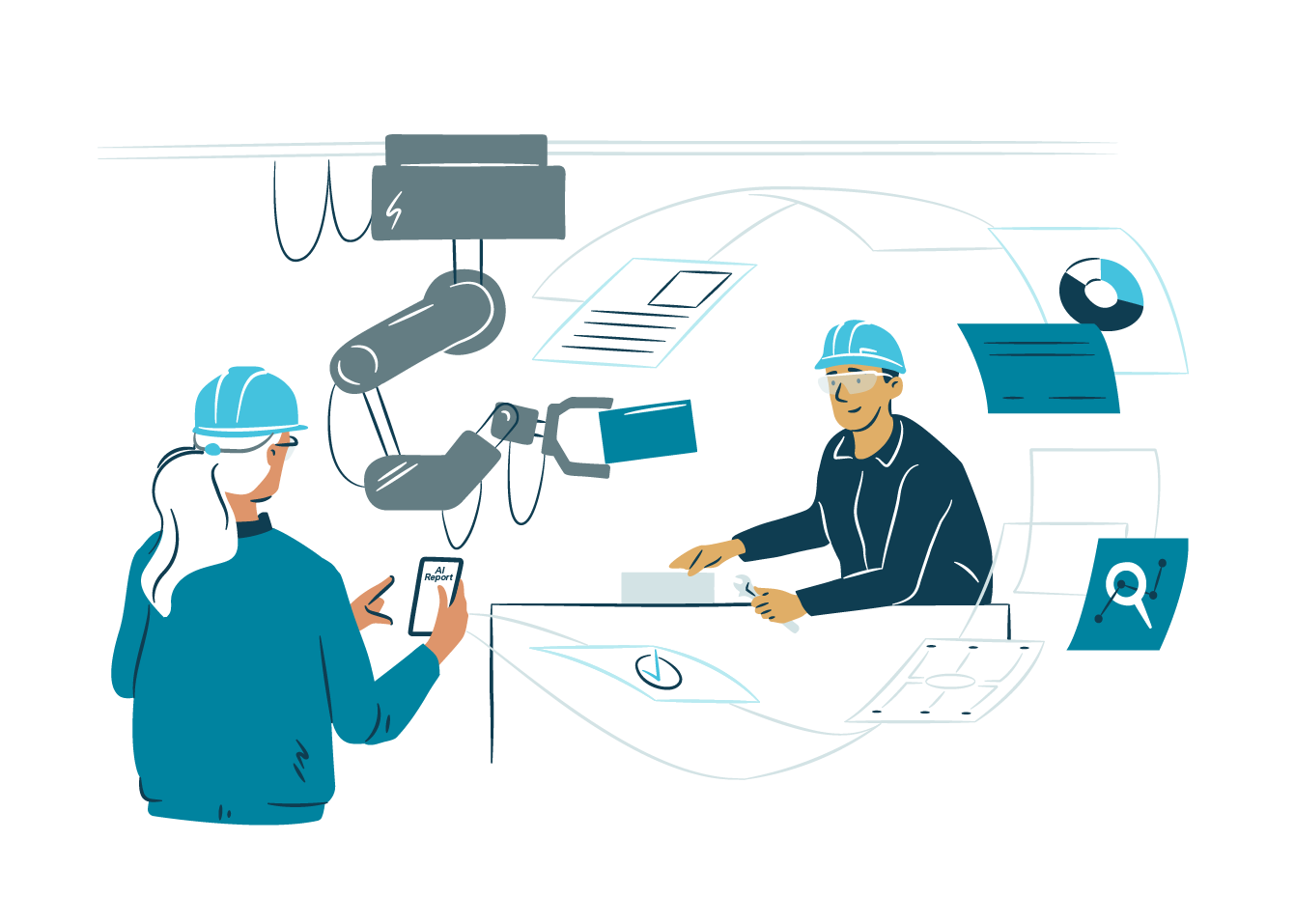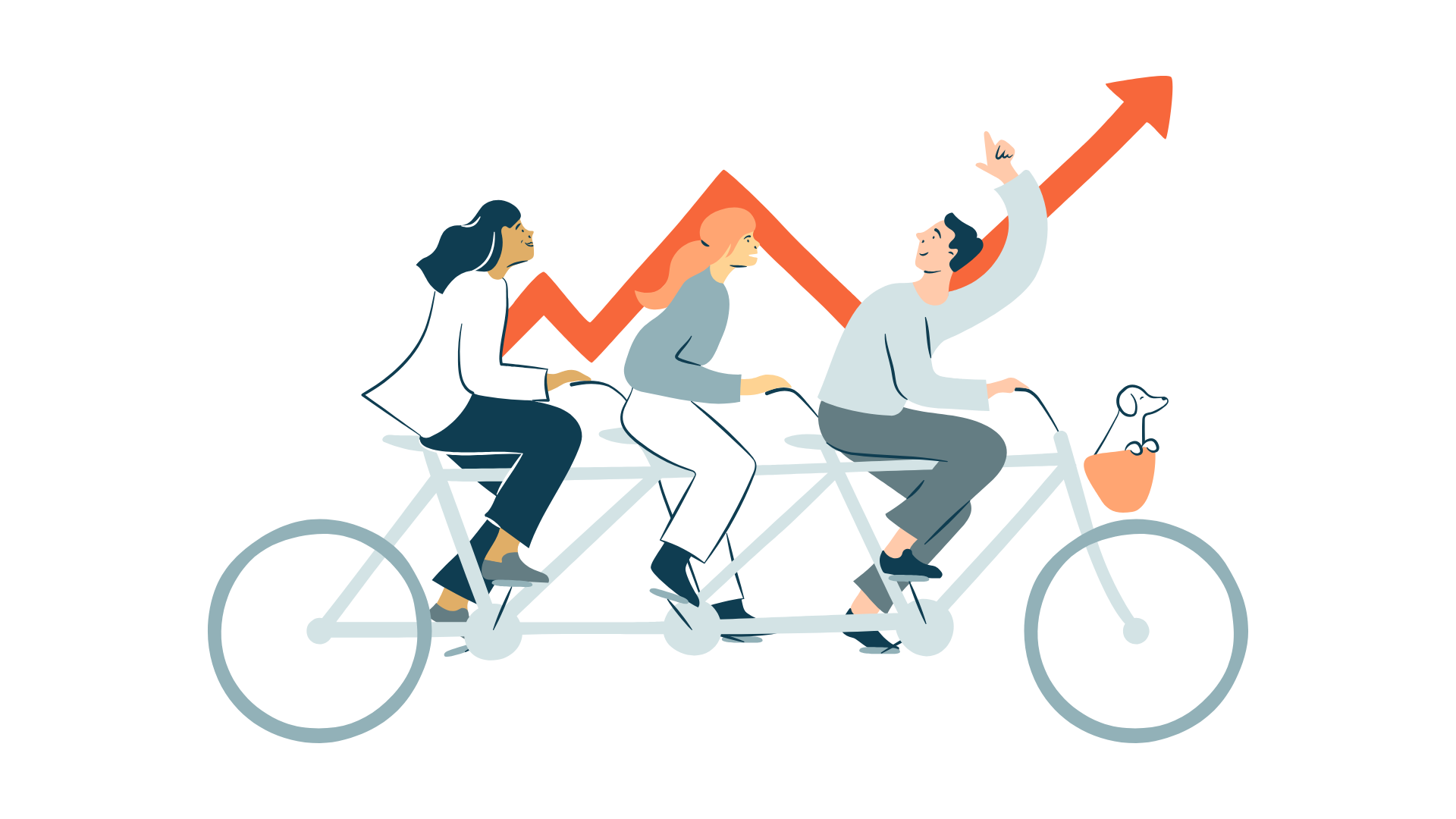A book called The Fourth Industrial Revolution by Dr Schwab describes how the fourth revolution is fundamentally different from the previous three. The fourth revolution combines the physical, digital and biological worlds. These new technologies will impact all disciplines, economies and industries.
The Fourth Industrial Revolution demands that CEOs take responsibility for the massive transformation of their businesses and for the extraordinary impact that this transformation will have on wider society.
– Pierre Nanterme, Accenture CEO
Already in 2016 The World Economic Forum at Davos stated that almost half of the jobs in the USA were at risk, because of Industry 4.0. However, Industry 4.0 also has great potential to drastically improve the efficiency of business and organizations and help regenerate the natural environment through better asset management, potentially even undoing all the damage previous industrial revolutions have caused. According to the report issued by Deloitte, over the next decade, the U.S. could be short of 12 million skilled workers. As a result of this, manufacturers are looking for ways to increase manufacturing efficiencies by doing more with less.
What is Industry 4.0

PICTURE 1: Industrial Revolutions
The first industrial revolution brought mechanization through water and steam power. The second revolution was mass production and assembly lines using electricity. The third was the adoption of computers and automation. Now, the Fourth Industrial Revolution is upon us. It is a fusion of fast technological breakthroughs in the physical, digital, and biological spheres. Technology breakthroughs in fields such as 5G, the Internet of Things (IoT), Big Data, Analytics, Artificial Intelligence and Robotics are significant on their own, but when combined we are talking about the enormous benefits of Industry 4.0.
- IoT. The Internet-of-Things (IoT) are where devices such as industrial sensors connect to the internet and to each other. IoT requires connectivity. 5G helps the evolution of IoT by improving the interaction between different platforms as well as enabling more devices to become connected.
- 5G. 5G will recode the whole concept of mobile connectivity. 5G brings a new-market disruption, which opens a completely new blue ocean of opportunities. 5G pushes industries to seek entirely new use cases for connectivity. 5G offers a completely different performance. 5G pushes a shift from the hardware business to the software business. 5G will change how people use and communicate with technology. It will change how different technologies communicate with each other. All this will take place faster and more reliably than ever before. Mobile internet will be faster than ever. High bandwidth and low latency will transform whole industries through new ways of connecting production processes and products.
- Big Data. There is more data available than ever. As the amount of data increases, new innovations and technologies to utilize the promise of this data are constantly created. Big Data can be filtered and turned into Smart Data. Fast Data aims for real-time data processing, where data is processed when it arrives. In the field of Big Data technologies like Artificial Intelligence, Machine Learning and Deep Learning can be used to analyze the data.
- Software ecosystems. With 5G, IoT, Big Data and Artificial Intelligence, the differentiating factor will be software capabilities. New capabilities are all about thinking outside the box. Ingenuity regarding what can be done with technologies, and how they can be applied to solve tomorrow’s challenges. This is a crucial mindset across every technology-related industry.

PICTURE 2: Industry 4.0 is a fusion of fast technological breakthroughs in the physical, digital, and biological spheres. It is not a single innovation, it is all the innovations combined. Illustration by Minna Vänskä
The key to achieving the potential of Industry 4.0 is a collaboration between stakeholders from (traditional) industries and technology partners. This requires a new agile mindset and cultural shift. In short, Industry 4.0 will bring a new productivity shift, while smart machines keep getting smarter as they get more data, and factories will become more efficient, productive and less wasteful.
We Are the First Generation that Can End Poverty, the Last that Can End Climate Change.
– UN Secretary-General Ban Ki-moon
Forbes vs Uros
Markus Meukel from McKinsey & Company dropped big numbers regarding the promise of IoT at the annual Nordic IoT 2019 keynote speech. According to Mr Meukel “IoT is the most impactful technology revolution” creating an estimated 10 trillion annual turnover globally by 2025. Sounds insane, doesn’t it. However, just this week a Finnish IoT company Uros presented its growth figures.
2015: $2,7M
2016: $42,7M
2017: $483M
2018: $1309M
And Uros CEO Jerry Raatikainen stated “What we are seeing now is the IoT market growing; the sector will be huge. We will leap into the year 2022 with the same rate of growth”. Mr Raatikainen is saying that a small technology company from Northern Finland will hit 50 Billion turnover in a few years. This underlines the effect the Industry 4.0 phenomenon offers for large companies. Industry 4.0 will change the game big time.
Industry 4.0 Examples
- Logistics: Optimize the routes of individual parcels and vessels (car, truck, ship) for efficiency and productivity. Automate everything. For example, Kalmar aims to optimize terminal processes. Zalando to use robots to pick packages. DHL is investing big time in Industry 4.0.
- Manufacturing: Smart manufacturing is a major application of the Internet of Things (IoT). For example, Fastems provides numerous references, where they have automated manufacturing lines around the world. Another interesting case example is the Bosch factory, where implementing radio-frequency identification-based tool management, embedding sensors to machines and analyzing real-time machine data and inventory, the factory renovated its manufacturing infrastructure and is able to understand and eliminate output losses and predict machine interruptions before they occur. Lean manufacturing principles, which form the backbone of smart factories, are being increasingly integrated into everyday operations. Adoption of lean manufacturing and the transition to data-led practices can increase the competitive edge of manufacturing. To improve manufacturing efficiency, one must backtrack from the customer. In today’s rapid cycle of customer demand, the linear design-manufacture-market-sell process does not increase competitive advantage, because demand forecasting is never as effective as ongoing collaboration. When customers are participating continuously in product design and make updates to their orders, they achieve a more productive relationship.
- Process Industry: The Industrial Internet offering by Valmet combines process technologies, automation and services, which will turn the benefits of the Industrial Internet into reality. Metso is focusing on providing sustainable solutions for the processing and flow of natural resources by means of Industry 4.0 and Digitalization.
- Food Production: Autonomous farming is taking agriculture to the next level. Agriculture 4.0 uses artificial intelligence to analyze the data from satellite imagery, weather forecasts, flying drones and IoT sensors on the field for crop modelling and for precision agriculture. For example, John Deere is pushing the boundaries on what can be achieved in the area of autonomous farming machinery.
- Mining: Sandvik AutoMine already provides full fleet automation with automatic mission and traffic control capability. Sandvik OptiMine analytics system creates a transparent model of the mining operations improving efficiency and safety.
- Business Disruption: Rolls-Royce has pioneered a pay-by-use approach in its jet-engine business; other manufacturers have followed. Rolls-Royce has turned from an RnD and manufacturing company to a data analytics company. Some say, that Rolls-Royce started the whole subscription economy of today’s Netflix and Spotify culture.
- IPR Business: Today, many manufacturing companies have deep expertise in their products and processes but lack the expertise to generate value from their data. SAP offers consulting services that build on its software. Qualcomm makes more than half of its profits from intellectual-property royalties. Manufacturers might offer consulting services or other businesses that monetize the value of their expertise.
We Are Creating a Better Future
Adopting Industry 4.0 technologies will help countries and businesses achieve sustainable growth. Industry 4.0 capabilities will enable faster design, novel products, reduced risks, optimized processes and the elimination of waste. New technologies will contribute to companies’ economic success. But they will also fulfil a social purpose, by contributing towards improving people’s lives. New technologies like artificial intelligence and edge computing can make people’s work less error-prone and create more room for creative tasks. These are technologies that will enable us to stay successful.



